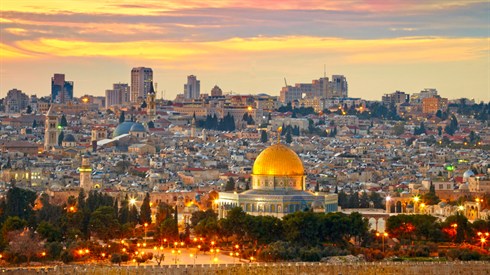- Torah Portion and Tanach
- Ekev
- Sections
- Parashat Hashavua
28
The early commentators suggested different explanations for this phrase. Ibn Ezra relates the phrase to the descendants of those killed 40 years earlier, who did not restore past Egyptian glory. The Ramban expands this, saying that the name of those who had the gall to chase after those redeemed by Hashem was permanently destroyed. The Ramban, though, does not see the scriptural basis for these ideas. He suggests that the lasting destruction refers to the previously legendary Egyptian fleet of horses and chariots, which never recovered. This is a sign of the lowliness of Egyptian society after 40 years of potential recovery time.
The Meshech Chochma paves a different "path through the sea." He says that Moshe was combating those who said that the splitting of the sea was an event that was reconcilable with nature by means of ebbs and flows. Moshe sent Bnei Yisrael to check if in the course of the subsequent 40 years, the phenomenon had occurred and reported that the event was unique "until this day." This proved that the event was a Divine miracle.
This point reminds us of a major philosophical debate. How should one relate to an apparently unexplainable miracle? One approach is that a miracle is a Divine divergence from the laws of nature and that it is inappropriate to look for a natural explanation. Another understanding is that the unusual events were prepared from the time of creation to occur as a built-in exception. A third approach is that there are physical explanations for miracles based on natural forces. For example, a volcanic eruption could have caused a thick veil of ashes that could have blackened Egypt. For it to have come at the time Moshe said it would made it a miracle. According to the final approach, we would not care if tides and winds could split the sea. Each approach will read our p’sukim differently.
Let us remember that we believe in the Creator’s Divine Providence in all of the miracles that have occurred to our nation in our times - according to whatever approach above one takes. We recall the rule that "whoever does not believe in miracles in the Middle East is not a realist."

Hagala in Practice
Chapter Ten-Part Four
Rabbi Eliezer Melamed | 5775

Hagala in Practice
Chapter Ten-Part Four
Rabbi Eliezer Melamed | 5775

Use of Harchaka D’Rabbeinu Tam
Various Rabbis | 5771

Siyum for Taanit Bechorot Via Live Streaming
Rabbi Daniel Mann | Adar 29 5780
Daf Yomi Sanhedrin Daf 108
R' Eli Stefansky | 6 Nisan 5785
Daf Yomi Sanhedrin Daf 110
R' Eli Stefansky | 8 Nisan 5785
Daf Yomi Sanhedrin Daf 113
R' Eli Stefansky | 11 Nisan 5785






